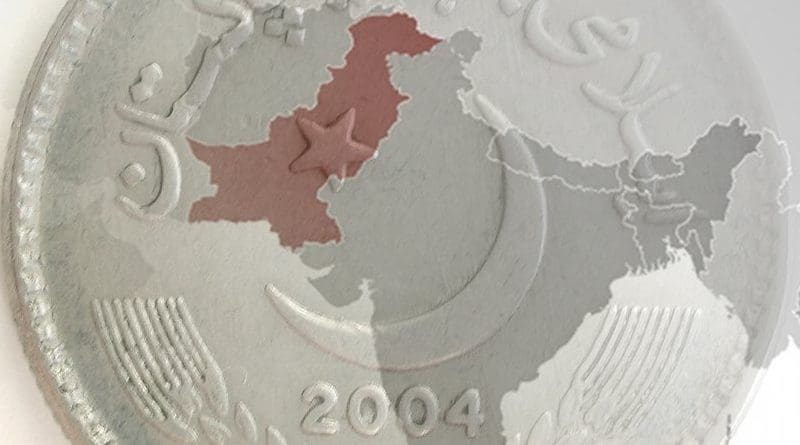Pakistan’s Doing Can Be Its Undoing: Web Of Financial Terror In Sub-Continent – Analysis
By Sanchita Bhattacharya*
The trail of financial terrorism in the Indian sub-continent has got the countries of Bangladesh, India and also Pakistan in this intricate web. In one such latest incident, Pakistan has withdrawn one of its diplomats from Bangladesh. Farina Arshad, Second Secretary at the Pakistan High Commission in Dhaka, was charged by Bangladeshi establishment in charges of financial terrorism. She was called, as reported on December 24, 2015.
Pakistan decided to withdraw the lady diplomat after the Bangladeshi authorities asked the diplomat to leave for reportedly having “extended financial support to a suspected militant who faces spying charges”. The police was quoted as saying that Jama’atul Mujahideen Bangladesh (JMB) militant, Idris Sheikh, alleged in a court in Dhaka that he had links with Arshad and that he was given 30,000 taka ($380). The information about Farina Arshad’s link to financing terrorism came during a strain in diplomatic ties between the two countries over Pakistan’s denial about committing genocide in Bangladesh during the 1971 War of Independence.
Moreover, as reported on December 23, 2015 several government leaders in Bangladesh, including ministers lashed out at Pakistan for “promoting militancy” in Bangladesh, with the Shipping Minister, Shahjahan Khan, saying: “Pakistan High Commission in Dhaka has become a den of militants”.
This is not the first time that such terror liaison has been unearthed in Bangladesh, directing towards Pakistan’s sinister involvement. Bangladesh earlier on January 31, 2015 expelled another Pakistani diplomat. Mohammad Mazhar Khan, attaché at the consular section of Pakistan High Commission in Dhaka, was an Inter-Services Intelligence (ISI) agent, Bangladesh Foreign Ministry officials said. He had set up a wide network of producing and distributing fake Indian currency. Moreover, an intelligence report said Mazhar in collaboration with some colleagues at the High Commission used to channel the money earned through his currency scam to Bangladeshi militant organisations like Hizb ut-Tahir, Ansarullah Bangla Team and political outfit of Jamaat-e-Islami.
Arresting Pakistani citizen and seizing fake currency have become common phenomena in Bangladesh. In 2012, some Laskhar-e-Taiba (LeT) militants were arrested with foreign currency of Bangladeshi taka (currency) 10 crore. Three of them were Pakistanis. Similarly, Pakistani citizens Mohammad Danish, Sabbir and Bangladeshi Fatema Akhtar were arrested with 10 lakh fake Indian rupee on January 18, 2014. And on January 21, a Bangladeshi citizen named Zahid Hasan was arrested with 50 thousand forged Indian notes. Pakistani national Mohammad Imran was arrested at Hazrat Shahjalal International Airport on January 15, 2015 with 80 lakh fake Indian rupee. He came to Bangladesh allegedly with fake passport and visa.
There is no doubt that India is suffering due to the nexus between Bangladeshi militants and their aides in Pakistan. Way back in its Annual Report of 2007-2008, India’s Union Home Ministry stated: “the hand of Pakistan-based terrorist organizations, LeT and Jaish-e-Mohammed (JeM) and, increasingly of the Bangladesh-based Harkat-ul-Jihad al-Islami (HuJI), known to have close links with the Pakistani Inter Services Intelligence (ISI), has been observed in most cases” of terrorist attacks in India. New Delhi has also accused HuJI of providing grenades to the LeT in India, in addition to coordinating attacks in India with the Students’ Islamic Movement of India (SIMI), the LeT and JeM.
As is evident, one of the dominant militant outfits of Bangladesh, Harkat-ul-Jihad-al-Islami Bangladesh (HuJI-B), a Deobandi group, is affiliated with the Pakistan-based HuJI, and was formed by 17 Bangladeshi mujahidin that returned from Afghanistan, allegedly with financial help from al-Qaida. Shahadat-e al Hikma (SAH) announced in 2003 that it planned to launch an armed struggle to turn Bangladesh into an Islamic state. It was promptly banned.
It is very interesting to note that while Pakistan is busy financing terror activities in other countries of the sub-continent and is also very much engaged in smuggling of fake currencies, the State Bank of Pakistan (SBP) itself is devising policies to curb the menace of fake currency in its own country. As part of its campaign “Rupay ko Pehchano,” the SBP has developed and launched a total of five videos on the security features of currency notes. It has developed one video for Rs5,000, Rs1,000 and Rs500 notes each while another video sheds light on the security features of Rs10, Rs20, Rs50 and Rs100 notes. One video highlights the security features of all currency notes in circulation.
In addition, the SBP has launched a mobile application to inspect the currency note. The latest application easily identifies the fake currency note. “After a rising chorus of public complaints by people who unwittingly got duped into accepting these fake notes, the task for SBP was clear,” according to a report issued by SBP. Mobile app for iOS devices (iPad, iPhones) and Android educates the users about tell-tale signs behind a real and a fake Pakistani rupee note of any denomination.
Earlier, on October 6, 2015 SBP stated that the presence of counterfeit currency notes is an undeniable fact and primary responsibility to check their influx lies with law enforcement agencies. The SBP said it has adopted a three-pronged strategy: ensuring state-of-the-art security features in banknotes that are difficult to counterfeit; developing necessary capacity and infrastructure with banks to issue genuine and authenticated bank notes to the public; and creating awareness among the general public.
The problem of terror funding and circulation of counterfeit currency is not only crippling the economy of the sub-continent but financial fraud has become an important constituent of terrorism. Pakistan, on the one hand, is trying to spread the menace to other parts but there is no denying the fact that, on its domestic turf, the situation is gradually getting out of hand. The terror-finance is a major evil to deal with, and it won’t be wrong to say that Pakistan itself is now facing the brunt.
*Dr. Sanchita Bhattacharya is a Visiting Scholar at the Institute for Conflict Management, New Delhi. She can be reached at: [email protected]

